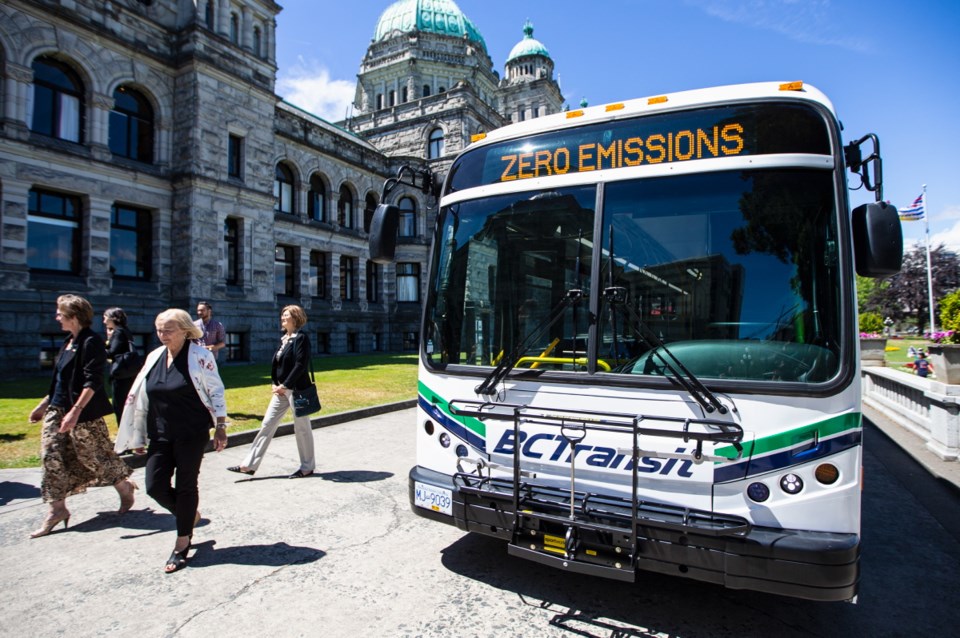B.C. Transit unveiled a plan Monday to have a fully electric bus fleet by 2040.
To reach that goal, B.C. Transit plans to buy only electric heavy-duty buses — the average-sized buses on the road — starting in 2023. The plan builds on the provincial government’s July 18 commitment to a $79-million investment in 118 new buses in B.C.
For Greater Victoria, that includes 10 battery-electric buses and 21 compressed natural-gas buses. The new buses will be funded 40 per cent by the federal government, 40 per cent by the provincial government and 20 per cent by local government.
Aaron Lamb, B.C. Transit’s vice-president of asset management, said the 10 electric buses should be rolling by 2021.
At as much as $1.2 million each, electric buses cost considerably more than their diesel counterparts, which have a price tag of about $700,000.
Lamb said a pilot project where an electric bus operated on various Greater Victoria routes for about three months starting in April 2018 showed promising results in terms of the potential for cost-recovery over the long term, because of lower operating costs for electric versus diesel fuel.
Riders also gave the electric bus good reviews, Lamb said. “They loved how quiet the bus was,” he said. “It just gave them the feeling that they were helping fight the cause in terms of sustainability.”
Compressed natural-gas fuelling stations are being installed for that part of the new fleet, and as the system invests in electric buses, charging infrastructure will also be required, Lamb said.
He said B.C. Transit already has a sustainable model, with a full city bus effectively taking 40 vehicles off the road. “In one year that saves 11,000 litres of fuel and 25 tonnes of greenhouse gases.”
Agriculture Minister Lana Popham, speaking for the province, said more than 20 per cent of B.C. Transit’s fleet will soon be composed of low-carbon emitting buses, including both compressed natural gas and electric.
“Electric buses are the future of transit,” Popham said. “Not only do they provide upward of 90 per cent reduction in [greenhouse gas] emissions compared to diesel, they’re quiet, they’re efficient, they’re modern and they come equipped with smart-bus technology.”


